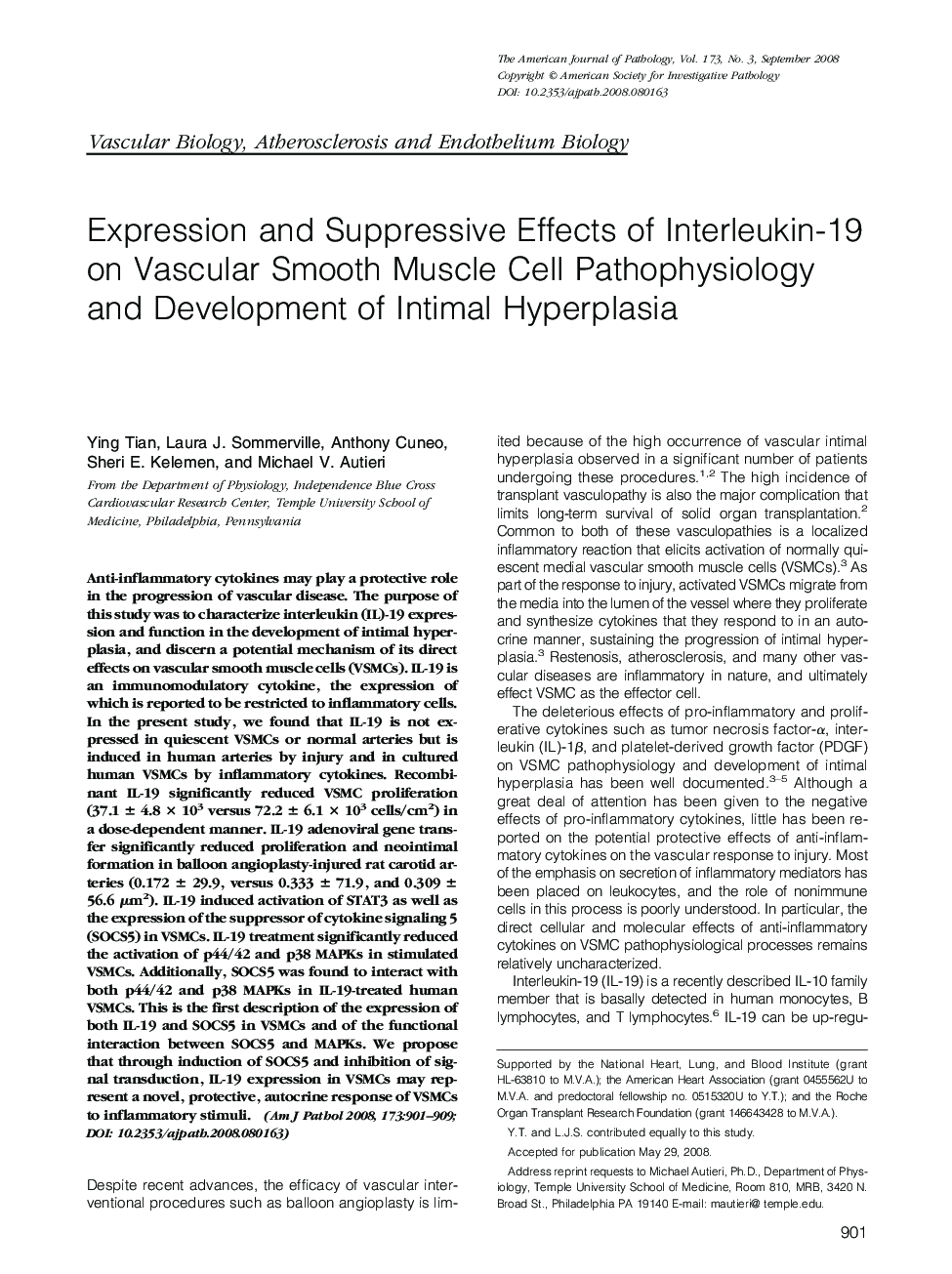| Article ID | Journal | Published Year | Pages | File Type |
|---|---|---|---|---|
| 5938356 | The American Journal of Pathology | 2008 | 9 Pages |
Anti-inflammatory cytokines may play a protective role in the progression of vascular disease. The purpose of this study was to characterize interleukin (IL)-19 expression and function in the development of intimal hyperplasia, and discern a potential mechanism of its direct effects on vascular smooth muscle cells (VSMCs). IL-19 is an immunomodulatory cytokine, the expression of which is reported to be restricted to inflammatory cells. In the present study, we found that IL-19 is not expressed in quiescent VSMCs or normal arteries but is induced in human arteries by injury and in cultured human VSMCs by inflammatory cytokines. Recombinant IL-19 significantly reduced VSMC proliferation (37.1 ± 4.8 à 103 versus 72.2 ± 6.1 à 103 cells/cm2) in a dose-dependent manner. IL-19 adenoviral gene transfer significantly reduced proliferation and neointimal formation in balloon angioplasty-injured rat carotid arteries (0.172 ± 29.9, versus 0.333 ± 71.9, and 0.309 ± 56.6 μm2). IL-19 induced activation of STAT3 as well as the expression of the suppressor of cytokine signaling 5 (SOCS5) in VSMCs. IL-19 treatment significantly reduced the activation of p44/42 and p38 MAPKs in stimulated VSMCs. Additionally, SOCS5 was found to interact with both p44/42 and p38 MAPKs in IL-19-treated human VSMCs. This is the first description of the expression of both IL-19 and SOCS5 in VSMCs and of the functional interaction between SOCS5 and MAPKs. We propose that through induction of SOCS5 and inhibition of signal transduction, IL-19 expression in VSMCs may represent a novel, protective, autocrine response of VSMCs to inflammatory stimuli.
